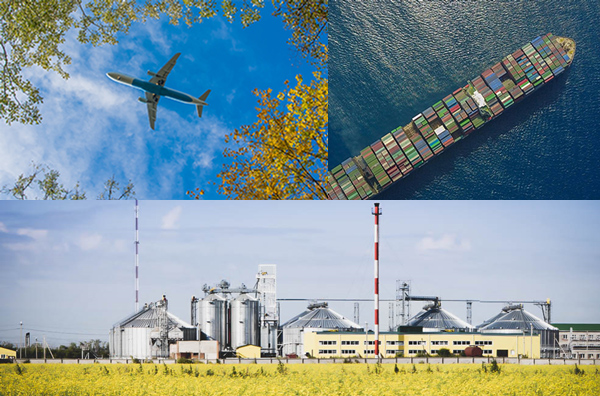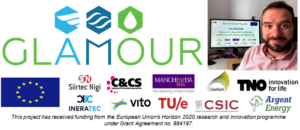Vincenzo Spallina on GLAMOUR
Meet the Department 8 June 2020
To celebrate the commencement of the new H2020 funded GLAMOUR project, we spoke to the project’s PI, Vincenzo Spallina, in order to find out more about this project:
- Congratulations on being awarded a €5 million grant from the European Union’s (EU) Horizon 2020 programme, can you tell us about what the grant will be used for?
Thank you. This project is related to a larger research programme on Energy of the EU Commission which aim to develop and innovate renewable technologies including biomass, biofuels and alternative fuels. In GLAMOUR, we aim to produce clean biofuels starting from waste energy. This is the case of glycerol – an abundant waste by-product of biodiesel plants – as well as other bio-based feedstocks, and it can be converted into valuable liquid fuels and reduce the carbon dioxide emissions in aviation and shipping sectors to meet the reduction of 50% of CO2 emissions by 2050 in accordance with Paris Agreement. By the end of this 4 year project, we will built two new reactor prototypes and test the integrated process.
- You will be heading up this project, but who will you be working with over the next 4 years?
As project coordinator, I will be in charge to manage the overall project and I will also responsible of research supervision in Manchester. In Manchester, I will work with Adisa Azapagic from CEAS who will assess the sustainability of the technology. Being a large project, we have a detailed timeline and a lot of exciting research to carry out. This will be possible by combining a multi-disciplinary team of two universities (Manchester and Eindhoven), three research centers (CSIC, TNO and VITO) and five industries from six different EU countries led by University of Manchester. The presence of industry is very important to ensure the success of the technology development and further scale-up. We will interact with biofuel producers (Argent Energy), engineering companies (Siirtec Nigi, INERATEC), catalyst and material manufacturer (C&CS), consultant (PNO-Ciaotech) and we have also three big industries from energy and chemical sectors in our Advisory Board (ENGIE, Johnson Matthey, Total).
- What interests you in this area of research?
Since I started my PhD, I have been always looking how to “save the world”. As energy and process engineer, (one of) the answer is to develop new clean and sustainable technologies that can combine at the same time feasibility, convenience and they are environmentally sustainable. Therefore, I work on new chemical reactor and process concepts that could be demonstrated at lab scale and at the same time they could drastically reduce the greenhouse gas emissions and being implemented in the mid term. This is the case of intensified process such as gas-solid reactions or membrane reactors. My research is mostly applied engineering and therefore industrial support (scientific, technical and economic) is essential.
- How is Manchester helping you achieve these goals?
When arrived in Manchester there was very limited research ongoing on these technologies. The University has given me the possibility to build up the laboratory from zero. The last grants have made all the rest much easier. However, the best part is the staff members, both academics and the professional support services. They have welcomed me and supported since the very first day. It makes everything easier and I am grateful to them because they make the difference.



Leave a Reply